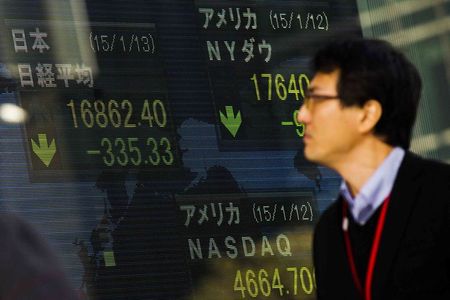What does a US recession mean for Asia? Morgan Stanley weighs in
2024.08.23 02:08

Investing.com– Morgan Stanley analysts said Asia is more exposed to a U.S. recession than past instances, with a corresponding slowdown in China presenting a smaller economic buffer for the region.
The brokerage still sees a base case for a soft landing for the U.S. economy. But the event of a bigger slowdown, or even a recession, presents headwinds for Asian economies.
The prospect of a U.S. recession in particular presents “significant downside” to Asian growth, MS said, with exports to slow across the board. Such a scenario is also expected to impact capital expenditure in the region.
MS said Japan, Korea and Taiwan would be the most exposed to a U.S. slowdown, while China and India have moderate exposure. Australia and Indonesia are the least directly exposed to the country.
Asian economies, excluding China, have a high export dependence on the U.S., with a slowdown in the country likely to impact this trend. Tech exports form a bulk of this dependence, and could help mitigate a demand slowdown in other sectors.
In China, the country’s export dependence on the U.S. has fallen in recent years, although it still remains relatively high, MS said.
Rate cuts, fiscal easing to help mitigate impact
The Federal Reserve is likely to cut interest rates in the event of a U.S. slowdown, with any deep rate cuts increasing the appeal of Asian markets.
But any easing measures in Asia are unlikely to offer much support and offset headwinds from the U.S.
China in particular is expected to have a limited presence in presenting a meaningful offset to headwinds from the U.S., given that the country is struggling with an extended deflationary trend and softening growth.
“Even if (China) do take up meaningful stimulus, it will be important to watch whether it will be more of the same supply-centric policies or if they pivot to boosting consumption,” MS analysts wrote in a note.








